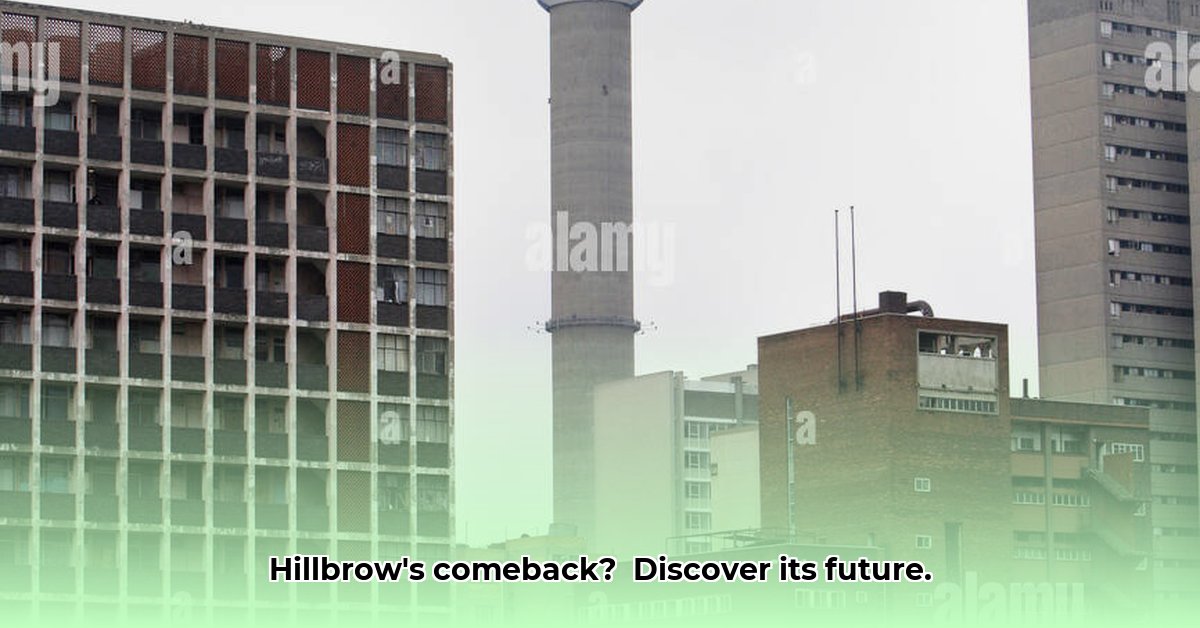
Hillbrow, Johannesburg – a name synonymous with a vibrant mix of cultures and, unfortunately, significant challenges. This article explores the multifaceted reality of Hillbrow, examining its historical context, current struggles, and outlining actionable strategies for its regeneration. We'll delve into the complexities, offering data-driven insights and expert perspectives to illuminate the path towards a more prosperous future.
A Historical Perspective: From Affluence to Adversity
Hillbrow's journey exemplifies the dramatic shifts in South African urban landscapes. Initially a predominantly white, affluent suburb, apartheid fundamentally altered its trajectory. Post-1994, a massive influx of migrants transformed Hillbrow into a diverse, multicultural hub. This rapid demographic change, while enriching its cultural fabric, strained existing infrastructure and resources, leading to many of the challenges seen today. The legacy of apartheid continues to cast a long shadow, impacting the socioeconomic landscape.
Current Challenges: A Complex Tapestry of Issues
Hillbrow faces a complex interplay of challenges. High crime rates remain a significant concern, impacting residents' safety and well-being. Many buildings stand dilapidated, reflecting years of underinvestment and neglect. Poverty and unemployment are widespread, further compounding the difficulties faced by many residents. Inadequate infrastructure – including sanitation, public transport, and basic services – exacerbates the existing problems. This isn't simply a case of urban decay; it's a human crisis affecting lives and livelihoods. How can we effectively address these interconnected problems?
Regeneration Strategies: A Collaborative Approach
Regenerating Hillbrow requires a collaborative effort involving various stakeholders, working in a coordinated and sustained manner. A holistic and action-oriented strategy is needed, focusing on both short-term improvements and long-term systemic change.
Invest in Infrastructure & Housing: Significant investments are needed to upgrade infrastructure—reliable water and electricity, improved sanitation, and better public transport. Affordable housing initiatives are crucial to address overcrowding and poor living conditions. This requires both public and private sector involvement.
Empower the Community: Meaningful community engagement is vital. Resident participation in planning and decision-making is key to building ownership and buy-in. Supporting existing community organisations and establishing new initiatives that empower residents are crucial. What community-led initiatives have proven successful elsewhere, and how can we adapt them to Hillbrow’s unique context?
Tackle Crime Proactively: A multi-pronged approach is needed, going beyond simply increasing police presence. This includes community policing initiatives to build trust, addressing root causes of crime (poverty, unemployment), and preventative measures. What crime reduction strategies have shown the greatest success in similar contexts?
Boost Local Economies: Supporting local businesses and creating job opportunities are vital for economic empowerment. Skills development programs and entrepreneurial support can empower residents and create a more self-sufficient community. How can we attract responsible investment that benefits the community?
Preserve Hillbrow's Heritage: Regeneration must be sensitive to Hillbrow's rich history and architectural heritage. Careful planning and preservation efforts can ensure that the area's historical character is not lost in the process of modernisation. Can adaptive reuse of existing buildings help preserve the area's character while promoting modernisation?
Stakeholder Roles and Responsibilities
The regeneration of Hillbrow hinges on effective collaboration. Different stakeholders have crucial roles:
| Stakeholder | Key Responsibilities |
|---|---|
| Government (Local & Provincial) | Funding, policy, infrastructure, law enforcement, social programs |
| Private Sector | Investment, development, job creation, affordable housing solutions |
| Community Organisations | Community engagement, social services, advocacy, representing resident voices |
| Residents | Active participation, collaboration, shaping their community's future |
A Sustainable Future for Hillbrow: A Call to Action
Regenerating Hillbrow is a long-term commitment requiring sustained effort and collaboration. However, by addressing the interconnected challenges head-on, with a clear strategy and a focus on community empowerment, a thriving future for Hillbrow is within reach. It's a collective responsibility – a shared journey towards a more just and prosperous Hillbrow for all.